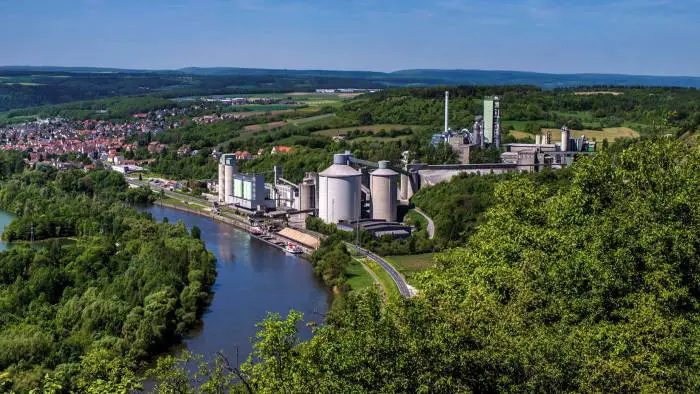The world’s first carbon-neutral cement plant is set to be constructed in Sweden on the island of Gotland where HeidelbergCement‘s subsidiary, Cementa has a plant, the Slite plant. The plan is to construct a plant that will capture up to 1.8 million tonnes of carbon dioxide annually from 2030, the year operation will begin, and onwards. Once captured, the carbon dioxide will be transported to a permanent storage site offshore several kilometers down in bedrock. Additionally, increased use of biobased fuels in the cement production to significantly raise the share of biomass in the fuel mix has been planned to be incorporated by HeidelbergCement during operation.
Also Read: World’s First Community 3D printed Zero Net Energy homes announced
“We want to be the pioneer on the path to CO2 neutrality in our industry. It is important that we are not only setting decarbonization targets but implement concrete projects and gain speed. HeidelbergCement will be the leader in the global cement industry on its transformation path towards climate neutrality. We have the confidence now that we can pull it off from a project management perspective and get the right balance in terms of financing from the government.” Chief Executive Dominik von Achten said. The US$122 million plant has begun being studied for feasibility in areas such as environmental impact, legal issues, logistics, financing, and energy supply. Sweden’s minister for enterprise Ibrahim Baylan said the cost of the site would be three or four times that of Brevik, estimated to reach US397m for carbon capture, which is part of a broader investment that also covers transportation and storage.
Baylan said government support was “not in the vicinity” of the two-thirds of the financing offered by Norway for the carbon capture and storage project related to Brevik, set to come online by 2024. “We’re initially supporting the company with some funds,” he said. “In the long run, we expect the industry to make these investments for themselves.”
81%
